If you want to know how well your computer and all its components handle loads to the limit, stress testing is probably the best way to go. By putting a heavy load on the CPU for a certain period of time, you can see how games and programs experience such a load.
No matter how good your car is, there is always room for improvement. And most of the time in the software department.
Every year, new and better stress testing programs are released. If you want to get the most out of your PC, you’ve already done so by creating a list of the best CPU stress testing software that can expose your system to attacks for a significant amount of time.
Table of Contents
What is CPU Stress Testing?
Before you start, it’s important to note that stress testing is not something you do every day. In fact, regular use can shorten the life of the processor.
Stress test programs put an incredible burden on system components. Not only do they consume large amounts of power through the processor to handle the workload, but they also impose high demands on RAM.
If you do not run the application at the same time as the stress test, your computer’s performance can be very slow after a while. Not only does it look like something went wrong somewhere on the line, but it could probably.
Some people like to do stress testing work in a loop that loops continuously until the program completes. They will work for at most an hour or two. But this is not always necessary.
The main idea behind stress testing is to test CPU and RAM functionality. Depending on how you do it, stress testing will tell you more about your computer.
What are the Benefits?
When using stress testing software, the first thing that can happen is that your computer can crash, depending on how strong you are to beat it. But instead, if you run it long enough, something else can happen.
This is the first test that a computer needs to reach its limits. Depending on how well it handles the workload, you may get a better idea of what your PC can and cannot handle in terms of performance.
People use stress tests to show the durability of PC components. This is a great way to showcase the features of your system and the best way to make sure they are actually working.
How does stress testing software work? There are several different ways to load the processor. The easiest way is probably to use Prime95. This software is great for testing CPU temperature and power, but not as good as other tools. It is one of the best stress testing tools as it is designed for only one purpose: testing your computer. This can be done by running various tests such as FFT, blender, P integer and so on. So don't waste your time anymore and get started cpu stress testing.
Best CPU Stress Testing Softwares
This is a list of the best CPU stress testing software available on the market. This CPU stress test software thoroughly tests your CPU limits. Let’s discuss cpu stress test tools.
1. Prime 95
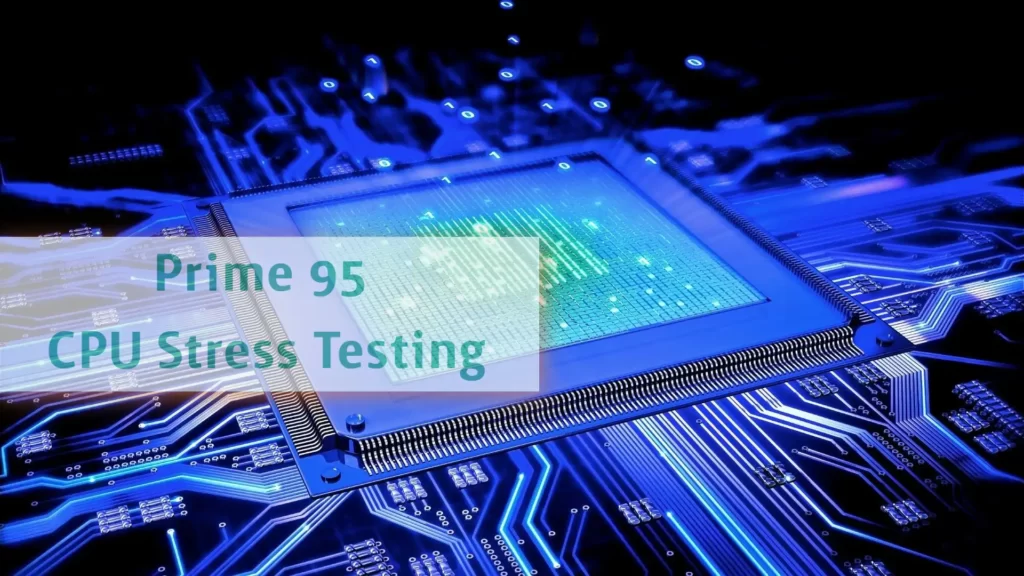
Prime95 is an undisputed champion when it comes to system stress testing. This program is designed to subject the machine to the rigorous testing to ensure that all components work to the limit.
But don’t scare you. While it can be literally “ruthless” when it comes to testing, it’s also one of the most user-friendly programs. It’s very easy to follow the speed test sequence and you should be able to run the entire process without any problems if you make a mistake in the first place.
You can run it automatically in a loop so that you can test the CPU stress test continuously, but the best way to handle Prime95 is to use it at intervals. It keeps your system in tone, and even if you don’t use it for one of its tests, you will still get a good idea of how much power you have.
So let’s take a look at some of the pros and cons of using Prime95 without any further hassle:
Pros
- Shows you all the right stats crucial to stress testing your PC.
- Automatic looping testing.
- Great for testing CPU temperature and CPU stress testing.
Cons
- Computer may experience crashes when using it.
2. Intel Processor Diagnostic Tool
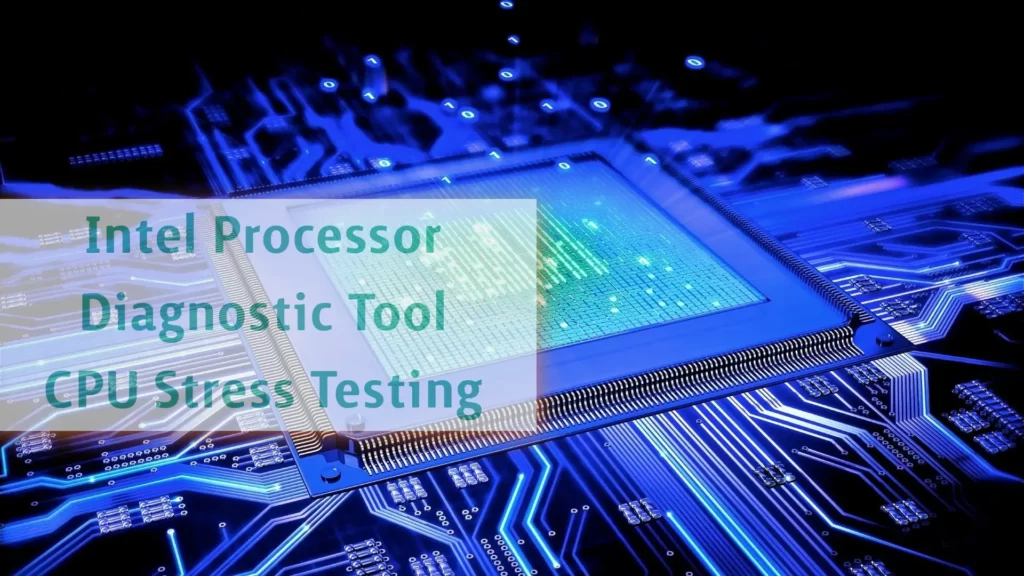
This program is a very interesting stress reliever because it can be used to test memory, graphics cards, and processors. It also displays the most important information about your system in a very readable format.
It’s also a bit difficult to get started with, as it’s recommended that you have at least as much technical knowledge as I do to get the Intel diagnostic software working properly. But once you get the hang of it, it’s worth it.
Not only can you test CPU and memory functionality with a single click, but you can also better understand what is happening on the CPU and how close it is to the maximum. It can also be used to test the power supply by setting different parameters depending on the output power of the power supply.
Pros
- Easy to use.
- It can be used to test CPU, memory, and graphics card.
- Shows important information about your system in a single window.
Cons
Can only be downloaded if you are an Intel user or have the ability to spoof your operating system information so that it thinks you are using an Intel processor.
3. CPU-Z
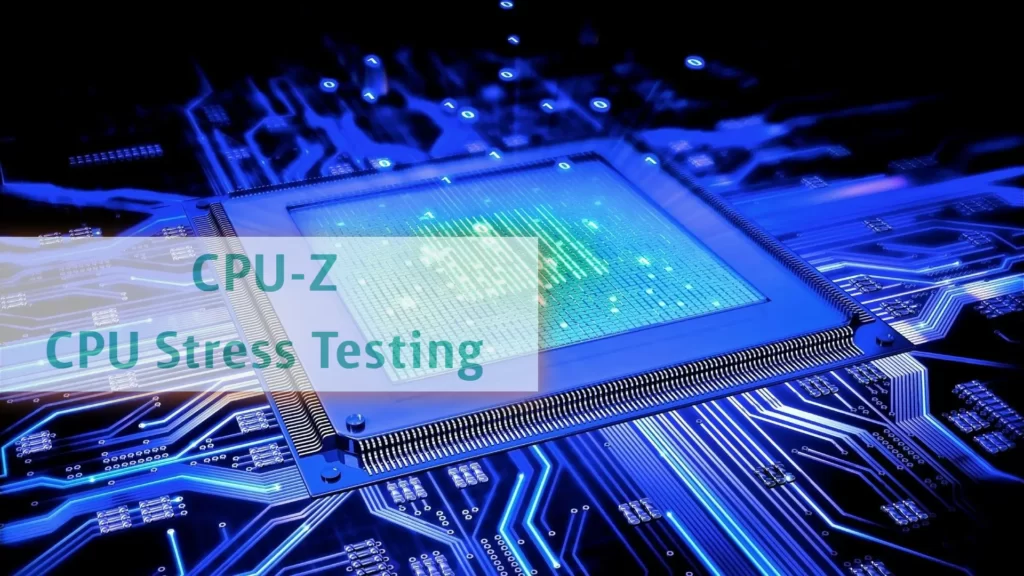
It will be difficult to find CPU stress testing software that is cleaner and easier to use than CPU-Z. It contains all the basic information you need to know about your machine and everything is presented in a very clear and easy-to-read elegant table.
You can monitor CPU usage at any time and get detailed information such as the number of KBs in the installed cache. It also shows the exact speed of the processor. This is a very useful feature given the speed of modern processors.
As a bonus, you can also get information about the CPU sockets your CPU is using and the space left to upgrade to a more powerful CPU.
CPU-Z is a great all-round stress tester, but the only real problem with it is that it’s not as thorough as the previous two options. For example, if you’re looking for more powerful stress testing software, this may not be right for you, as GPUs are less stressful.
Pros
- Easy to use and very user-friendly.
- Free.
- Shows all the information you need about your CPU in an easy-to-read chart.
Cons
- Doesn’t stress GPU, though it does stress RAM and motherboard.
4. Cinebench R20
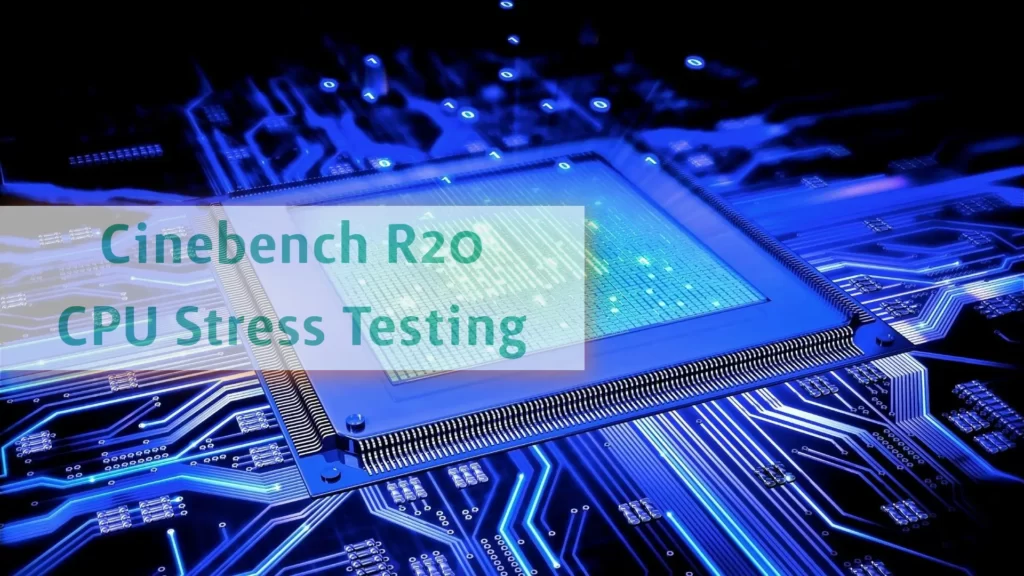
Cinebench R20 is a great tool that provides a great deal of information about your system’s CPU and GPU performance, so if you are looking for a more powerful stress test, this may be a good choice.
Cinebench R20 not only shows the theoretical maximum speed of CPU and GPU, but also what performance (from an FPS point of view) you will get after reaching that speed. This is very useful as it provides a lot of valuable information about hardware performance.
However, the only thing I don’t like about this software is that it uses a very old test run.
The Cinebench R20 stress test lasts only 3 minutes. This may seem like a long time to stress testing, but in reality most modern games can last for 3 minutes (if not more). In that case, a 3-minute real test is not enough to get a good idea. What your computer can achieve.
Pros
- Designed to test all available CPU cores
- Allows you to change the CPU (and RAM) load
- Can help identify if your computer is getting bottlenecked by the processor or the graphics card.
- Comes with an easy-to-use interface and can be downloaded for free.
- cpu stress test free
Cons
- Can be complicated to use if you’re not familiar with CPU utilization.
5. AIDA64
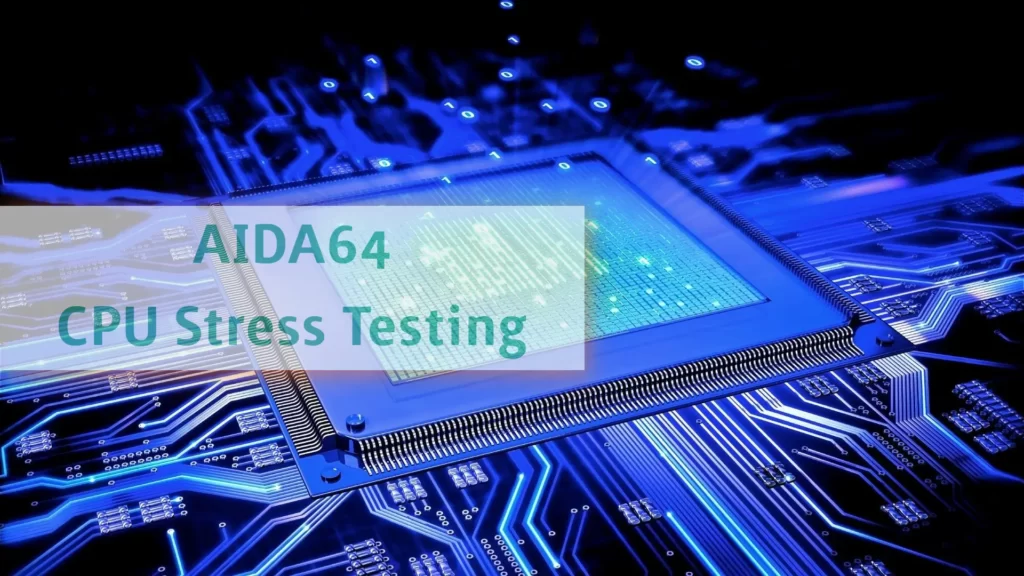
AIDA64 is hardware testing software with a built-in sensor monitoring system. You can measure CPU, GPU, and even memory usage. It also has a temperature and fan speed sensor.
AIDA64 also has a benchmarking tool that can be used for stress testing of most components, allowing you to choose the type and duration of testing to run and configure it to run. In a loop.
Overall, this is a great program and doesn’t do anything special, but it’s more than enough for most people.
Pros
- Shows you all the right stats crucial to stress testing your PC.
- Provides the best support for hardware bells and whistles.
Cons
- AIDA64 Business Edition can be a bit complicated to use for beginners.
6. Intel Extreme Tuning Utility
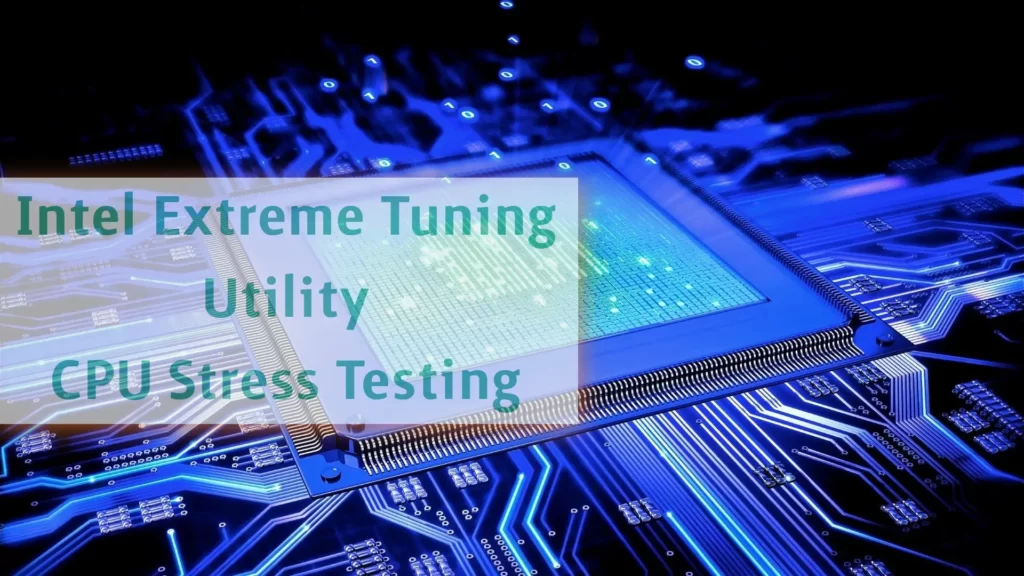
Intel Extreme Tuning Utility is also a great stress testing software. It can be used to stress test CPU, GPU, and memory performance. You can’t do anything special, but it’s very good for basic tasks.
It can be very easy to use, given that it’s a GUI that just moves a slider for the settings you need. The only problem with this software is that it can be a bit confusing at first, but once you get the hang of it, it’s irreversible.
It also has an automatic loop feature that can be enabled or disabled and can be used as built-in benchmarking software, so if you are looking for a stress testing utility specially designed for stress testing computer hardware, this is for you. you.
Pros
- Shows current and average CPU performance in one chart.
- Allows you to stress test GPU.
- CPU stress test free.
Cons
- Can be a bit confusing to use at first if you’re not familiar with overclocking.
7. HeavyLoad
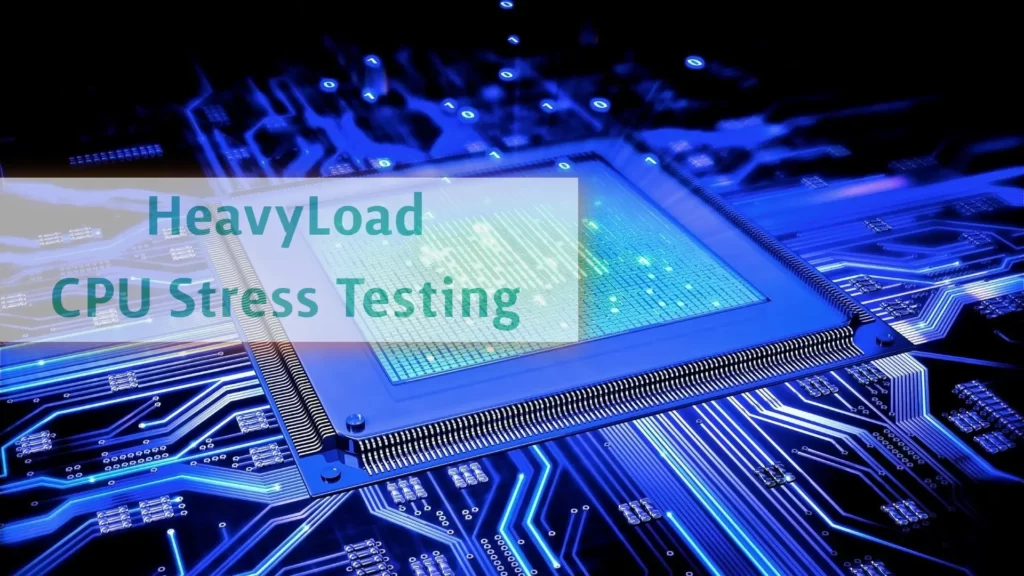
Another free stress testing program is Heavy Load. It’s not as user-friendly as some of the previous stress testing programs, but it does the job. It can be used to test CPU, memory and GPU performance and display accurate results even if the hardware is not new.
There is also a built-in test that you can use for stress testing and you can choose the execution time. Overall, this is a great tool for advanced users.
It’s also worth mentioning that HeavyLoad consumes a lot of memory, which can be a problem if your PC doesn’t have enough RAM. However, if all the programs have enough RAM, this is not a big deal.
Pros
- Allows you to choose the length of time it will run for in order to get accurate results.
- Shows current and average CPU performance in one chart.
- cup stress test free.
Cons
- Takes quite a while to download and install on your system.
8. Passmark BurnInTest
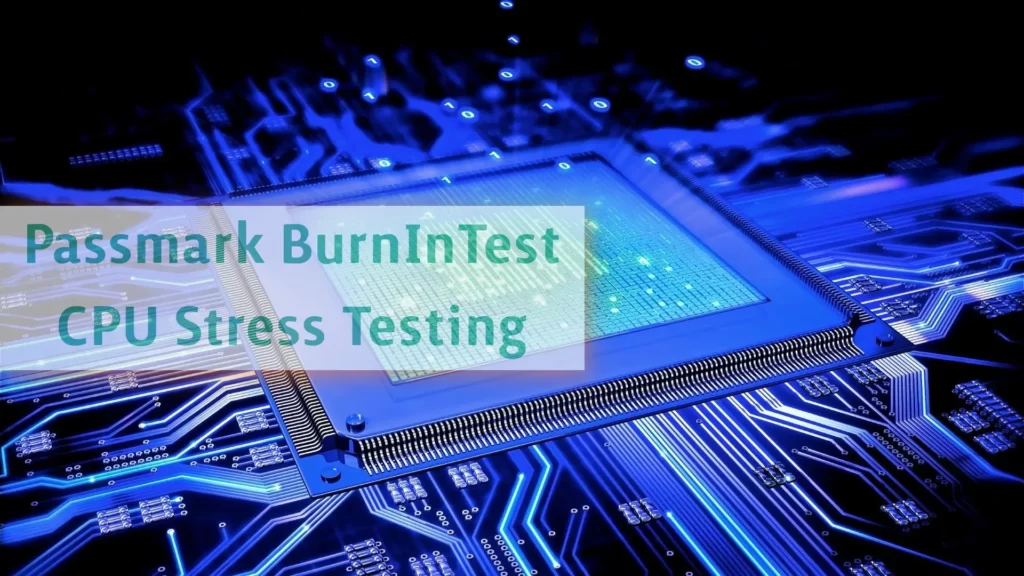
The name Passmark BurnIn Test already implies what it does, but let me explain further. This is another free stress testing software that you can use to thoroughly stress test your computer hardware and do this by always running it in the background.
The main screen of the program includes a CPU utilization meter that measures how close the system is to maximum load, and a CPU temperature monitor, which is a great feature for those who care about computer temperature.
There are also benchmarking tools that you can use for stress testing, and as mentioned earlier, you’ll get accurate results even if your hardware isn’t new. It’s not as difficult to use as other stress testing software, so if you’re looking for a simple stress tester, this is for you.
Pros
- Shows accurate CPU and GPU load results.
- Shows current and average CPU performance in one chart.
- CPU stress test free.
Cons
- Takes a while to download and install on your system.
- Can only stress test one CPU at a time.
Frequently Asked Questions
Do you have any doubts? Here are some frequently asked questions that readers usually ask.
What exactly does a stress test do?
A stress test is a type of test that gives you an accurate idea of how much power your computer can handle.
Running various resource-consuming programs over a long period of time to stress test your computer is like driving a car to a race track, crashing it over and over again to see how fast you can run. It is a thing.
What should I look for in a stress test?
You need to find something that can test the GPU and memory (if any), not just the CPU.
What is the best stress testing software?
It depends on what you are looking for. If you’re looking for a powerful stress test, you should probably continue to use CPU-Z and Cinebench R20. If you like games, we recommend that you install AIDA64.
Conclusion
You now have the top eight options for stress testing software. From simple to sturdy, you can find the perfect stress tester for you.
You can test your hardware with third-party software, but keep in mind that none of them are perfect. If you really want to know the performance of your hardware, the only real way to do it is to test it in real life. If you have a game that you know can put a lot of stress on your hardware, play it until your system boots.
We hope you enjoy this article. If you have any questions, please write in the comments section below.
- All Crypto Mining Methods: Detailed Breakdown of All

- Bitget Wallet: A Complete Guide for New and Experienced Traders 2025

- Bitget Exchange Review: A Comprehensive Guide to Features, Fees, and Benefits

- How to Create a Download Link: A Complete Guide (Including WordPress)

- 13 Best AI Tools Revolutionizing Daily Life: A Guide to the Best AI Technologies for Everyone

- How to See Specs of PC: A Comprehensive Guide

Recommendation: In-depth guide on Crypto Mining with the advantages and disadvantages. 10 Best Mining Rig Frames For Crypto Mining Setup In 2022 [Top] 8 Best Risers for Mining with Your GPU in 2022 RTX 3060 Ti Mining Profitability Setup in 2022 For effective Crypto Mining Best GPU for mining profit 2022 #Ethereum & #Altcoins Mining (with Pros & Cons) 10 Best Mining Frame /Mining Rig frame for Crypto Mining Setup in 2022 6 Best Motherboard for Ethereum Mining 2022 – Comprehensive Review Recommendation: Monitors to look at; 10 Best Cheap 240hz Gaming Monitors Reviewed By Mr. Wackadoo-Cheapest 240hz Monitors in 2022 7 Best Monitor For Xbox Series X – Fastest Gaming Monitor for Competitive Gamers Recommendation: Games to look at; Top 23 Best AA Games You Should Play Right Away| low budget games pc Top 25 FREE Single Player Games of All Time TOP 24 Open World Best Games on PC Today, Ranked by Mr. Wackadoo Dragon Age 4 release date, story, gameplay, and everything else so far Before the Blood| Announce Trailer| PC debut| Before the Blood Game on Steam— Enter Yes™ Recommendation: RTX graphics card chipset to look at; Best RTX 3070 Graphics Cards of 2021 Top GPUs-Best Graphics Cards for Gaming in 2021–2022 Best 2022 GeForce RTX 3080 Amazon Graphics Cards, Check Out Today’s Best Deal Best Gaming Headsets for PS4 and PS5 in 2022 and beyond List Of Best RGB Keyboards To Buy In 2021 and beyond






